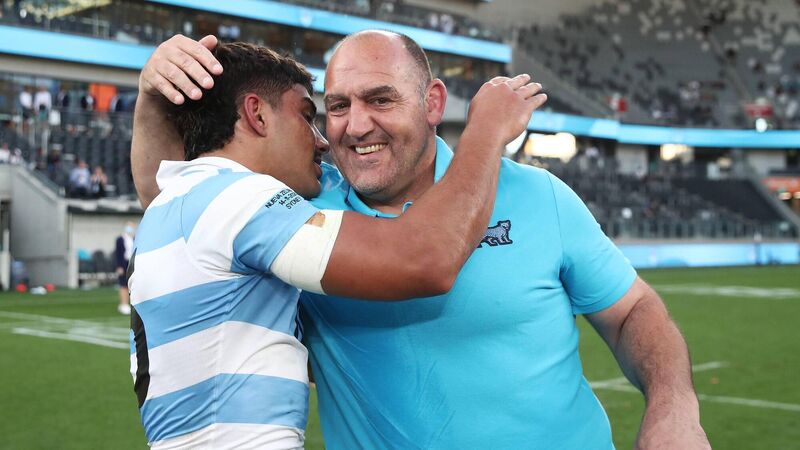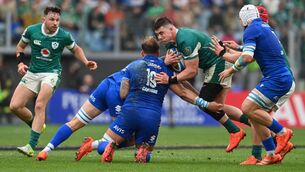Donal Lenihan: Why everyone wants to avoid Argentina in World Cup draw

EMBRACING SUCCESS: Argentina head coach Mario Ledesma celebrates with Santiago Carreras after Saturday's historic win over New Zealand
As the clock counts down towards the pool draw for the 2023 World Cup in France on December 14, Argentina offered a timely reminder to the rugby world what they have to offer.
Placed in band three of the draw, they are the opposition everyone will want to avoid, especially after what transpired in Sydney last Saturday.










